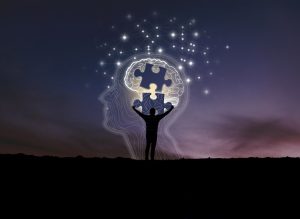
Is that normal aging or the early sign that you could be slipping into more serious cognitive decline?
The answer isn’t necessarily cut and dry. To get a better idea of where your mind is, a wider viewpoint might be required. A more focused approach may be to consider the frequency and severity of mental lapses.
Everybody forgets a name, can’t find a word, or misplaces their keys from time to time. But if the word comes to you or you can retrace your steps to find your keys, it’s likely just a busy mind that led to a momentary lack of focus.
Things are more concerning when a minor distraction derails an important or routine action. Trouble keeping track of appointments or finances, for example, may indicate cognitive decline. Losing the ability to plan, multi-task, make decisions, or solve problems may also suggest early dementia.
The Alzheimer’s Association lists 10 early signs and symptoms of dementia. They are:
- Memory loss that disrupts daily life
- Challenge planning or solving problems
- Difficulty completing familiar tasks
- Confusion with time and place
- Trouble with visual images and spatial relationships
- Problems with language (speaking and writing)
- Decreased judgment
- Withdrawal from work or social activities
- Change in mood or personality
- Misplacing things and inability to retrace steps
Ultimately, the question comes down to the frequency and severity of these lapses. If they are happening often and to the point where life is disrupted, it could signify clinical cognitive decline.
Your overall health can play a role too. Diet, activity levels, and mental engagement all impact dementia risk as well.
Hopefully, that helps you navigate “senior moments” and recognize when closer attention may be required.